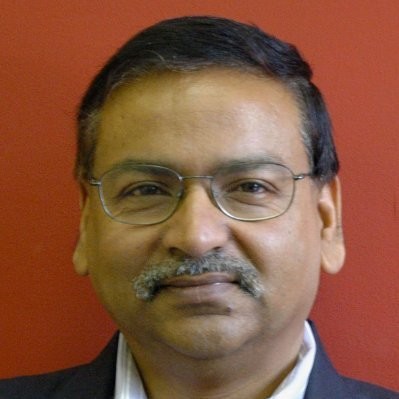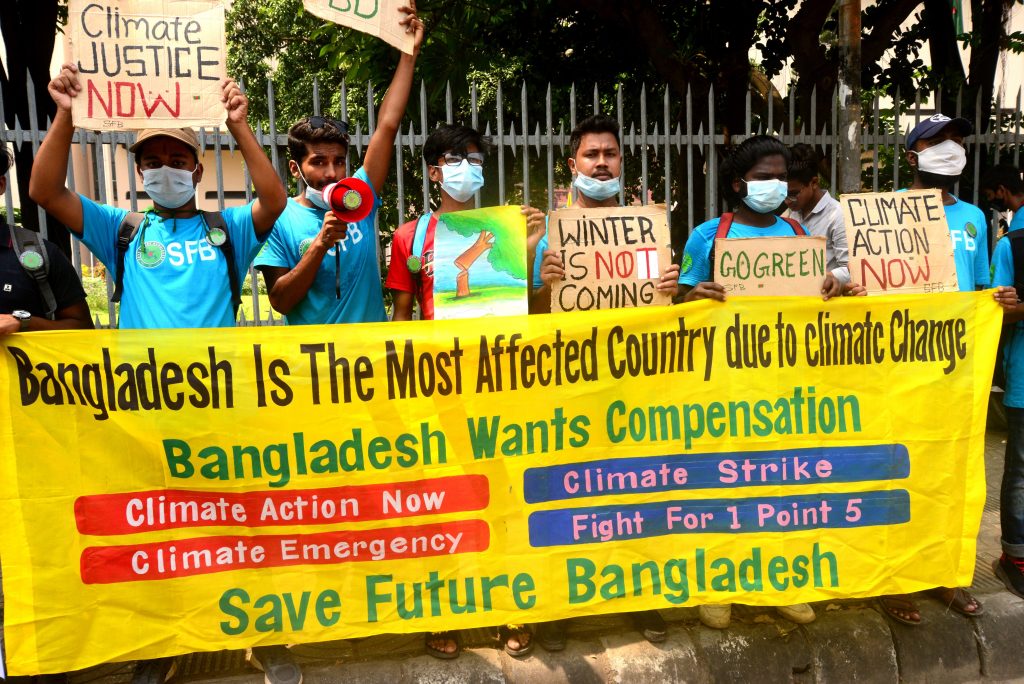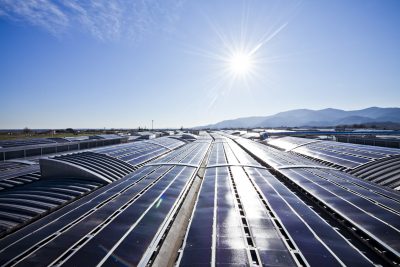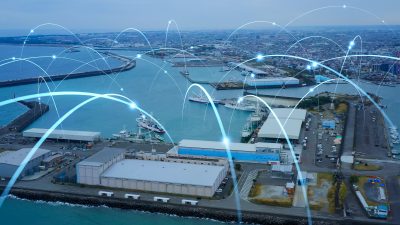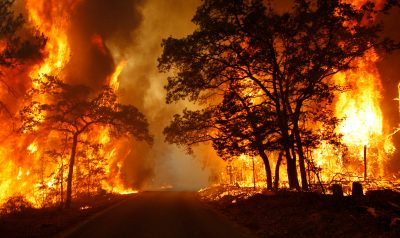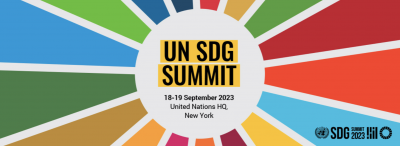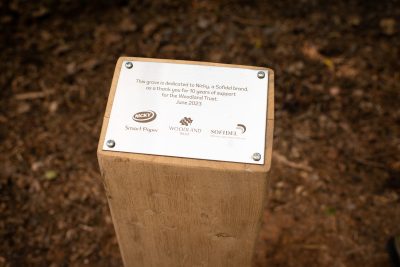One of the few people to attend every United Nations Climate Change Conference (COP) since they began, Saleemul Huq is director of the International Center for Climate Change and Development (ICCAD) in Dhaka, Bangladesh. He tells Future about his endless passion for reducing the impact of climate change
What is the mission of the ICCAD?
Saleemul Huq: The center is now 10 years old, so still fairly young. It’s a research center inside the Independent University, Bangladesh. The ambition is to make it into a global center on tackling climate change, particularly adaptation to climate change, and now, a new and emerging area called loss and damage from climate change. Because while climate change cannot be prevented from happening, unfortunately it can get worse. So, we are now in the era of dealing with the impacts of climate change. That’s our area of expertise.
What are you hoping to achieve?
Saleemul Huq: We do a lot of capacity building, particularly for vulnerable countries such as the least developed countries in Asia and Africa, on how to tackle climate change. We have a particular focus on a knowledge exchange with a formal group recognized by the UN of 48 of the most vulnerable, poorest countries. Most of them are in Sub-Saharan Africa, but a few are in Asia, including Bangladesh. The center also runs a network of universities in less developed countries (LDCs) called the Consortium on Climate Change (CCC).
For the last seven years, we have been running a one-year double major Master’s program in Climate Change and Development. It’s not a UN climate expert development program, it’s connecting climate change with development. Increasingly, people working in the development sector need to know about climate change and how it’s going to affect them. So that’s a growing area of skill requirement we provide for our students.
Have the Center’s objectives changed?
Saleemul Huq: It’s the same mission, but the urgency is much higher. ‘Loss and damage’ wasn’t on our radar 10 years ago. It is now, so we’re going to have to deal with it. We intend to be one of the major, global centers working on this new and emerging topic.
“Loss and damage’ wasn’t on our radar 10 years ago. It is now, so we’re going to have to deal with it. We intend to be one of the major, global centers working on this new and emerging topic”
Saleemul Huq
Why should so-called ‘developed countries’ do more to support faster-growing economies and poor countries?
Saleemul Huq: There are two paradigms under which this dichotomy of developed and developing countries plays itself out. There is a historical paradigm of colonialism, where rich countries became rich because they had colonies – and the developing countries of today are former colonies of those rich countries. So, there’s a legacy there of colonialization. And in many cases, the former colonialists recognize that and have been providing official development assistance to poor countries, mainly their own ex-colonies, out of a historical sense of responsibility. The paradigm under which they give it is the paradigm of charity. That is a very good reason for giving, but it really has no obligation attached to it.
There is a second formulation that applies in the climate change world under the United Nations Framework Convention on Climate Change (UNFCCC), which is a treaty that all countries have entered into to deal with climate change. Climate change occurs because of greenhouse gas emissions that have been emitting for the last century and a half since the Industrial Revolution and has also led to rich countries becoming rich by burning fossil fuels and emitting greenhouse gases, which are now causing damage. That’s a very different paradigm – but when we meet at the Climate Convention, it isn’t characterized by rich and poor, it’s characterized by polluters and victims of pollution, therefore, any obligation is legally binding, unlike development assistance, which is purely voluntary. The countries that make those promises can be held to keep those promises.
How does that work in practice?
Saleemul Huq: Countries made a promise in Paris in 2015, to pledge $100bn a year by 2020. But even by this year [2021] at COP26 in Glasgow, they still didn’t cough up the money. They said, “we’re not going to reach it till 2023.” That is a violation of trust and a violation of their obligation under a treaty. But we can’t say anything. The recipients have no place to – it’s the prerogative and authority of individual governments to overturn decisions, because of exigent circumstances. That failure to keep promises is wrong.
What good did COP26 achieve?
Saleemul Huq: I’m massively disappointed. We all came to Glasgow with very high expectations, which were aided and abetted by the UK’s Prime Minister giving big speeches and promising a lot. Then, two weeks later, they delivered very little of what they promised. On the other hand, something is better than nothing with regards to the finance agenda. The particular aspect of the finance issue, which is of concern the more vulnerable, developing countries, is how much money goes for adaptation, which is dealing with the impacts of climate change.
The amount of $100bn was meant to support both mitigation – reducing greenhouse gases – as well as adaptation. The donors have instead provided $79bn, but 80% of that was for mitigation in the form of loans, because mitigation projects for renewable energy mostly generate an income that can pay back a loan. But only 20% of the money pledged was for adaptation for the poorest countries to adapt to the impacts of climate change, which doesn’t generate any income for which they can pay back a loan. Even giving them a loan to deal with the impacts is morally questionable. So, the amount of funding for adaptation was only 20%, when it should at least be 50%.
The good thing that happened in Glasgow is that developed countries acknowledged that they had not done enough on adaptation, and they all agreed to double their adaptation funding in the next few years. Many of them announced new contributions on adaptation to funds like the Green Climate Fund while we were in Glasgow. So that is the positive: more funding for adaptation coming or being promised. Hopefully, it will come.
“The good thing that happened in Glasgow is that developed countries acknowledged that they had not done enough on adaptation, and they all agreed to double their adaptation funding in the next few years. That is the positive: more funding for adaptation coming or being promised. Hopefully, it will come”
Saleemul Huq
What other concerns do you have?
Saleemul Huq: Another issue I have been particularly concerned about is that, even the money that nations have given for adaptation – the 20% of the $79bn – has actually not reached the most vulnerable people in the most vulnerable communities in the most vulnerable countries. The best estimates are that only 10% of that money has gone to the most vulnerable. There is a failure to deliver funding meant for the most vulnerable people. There’s a variety of reasons for that and that’s something I work closely on – ensuring funds actually go to the most vulnerable. We call this locally-led adaptation – identifying local communities and funding them, rather than intermediaries such as governments that siphon off money in the middle.
What policy or direct action would you like to have seen from the summit?
Saleemul Huq: There was a very strong demand in Glasgow from all the developing countries for the creation of a facility for finance for loss and damage. Every country belongs to subgroups with other like-minded countries. There are many such subgroups, with all the developing countries subgroups joined under the umbrella called the ‘G77 and China’, which now consists of 138 developing countries who represent five billion people. This group had put forward language calling for the Glasgow Facility on Financing Loss and Damage, which was in the Glasgow Climate Pact text until the Friday that COP26 was supposed to officially close.
But then the COP26 Presidency extended the Conference by another 24 hours and, when we came back on Saturday, that language had disappeared and been replaced by a ‘dialogue’ rather than a facility. It was a very significant change and put the issue into the long grass. But we accepted it with heavy heart, and we’ll move on to COP27 [7-18 November 2022], in Sharm el-Sheikh in Egypt, reiterating the demands and participating in the dialogue.
What is still your biggest concern about climate change in the future?
Saleemul Huq: I characterize the future of climate change as being very different from the past. COP26 was completely different to the previous 25 COPs, because they were about preventing and preparing for a future climate change. At COP26, we have crossed the threshold. We now have unequivocal evidence from the IPCC [Intergovernmental Panel on Climate Change] Working Group that climate change is already happening – because global average temperatures have gone up by 1.1°C at least. So, COP26, and all future COPs, are in a new era: those of losses and damages from climate change, which is responsible for every single extreme weather event we see anywhere in the world. That it is a very strong presumption in the scientific community. The loss and damage we’re seeing, includes the loss of human lives. That’s the reality.
What fundamental changes would you like to see big business make in terms of how it operates it supply chains?
Saleemul Huq: The answer to the reality of tackling climate change more effectively lies in the business community rather than with governments, which have failed to give it adequate attention and priority. Businesses are going to have to do that now and many of them are realizing that and are tackling the reality of climate change. They need to figure out for themselves, what their role should be – on the one hand, by reducing their own carbon footprint and, on the other hand, to make their supply chains less vulnerable and more resilient going forward. It’s a double aspect of emission reduction on one side and building resilience on the other.
“The answer to the reality of tackling climate change more effectively lies in the business community rather than with governments. Businesses are going to have to do that now and many of them are realizing that and are tackling the reality of climate change. They need to figure out for themselves, what their role should be – on the one hand, by reducing their own carbon footprint and, on the other hand, to make their supply chains less vulnerable and more resilient going forward”
Saleemul Huq
Why do you do what you do? Why are you still so passionate about this?
Saleemul Huq: My passion comes from the injustice of it. It’s not fair that rich people cause the problem and poor people suffer, in essence. Being from Bangladesh, living in a very poor country that suffers from poverty, but also from climate change impacts, I’m able to study that, and learn how to deal with it. And potentially help others who will be in a similar position to help them as well. So that’s where my research interests lie.
I try to influence that process as best I can as an outsider. I’m not an insider or a negotiator, but I advise the least developed countries in the negotiations. I try to shift the tenor of the discussions in favor of the most vulnerable, which is a tough thing to do. The global political economy is not a level playing field, the rich and the powerful, never listened to the poor and the vulnerable.
